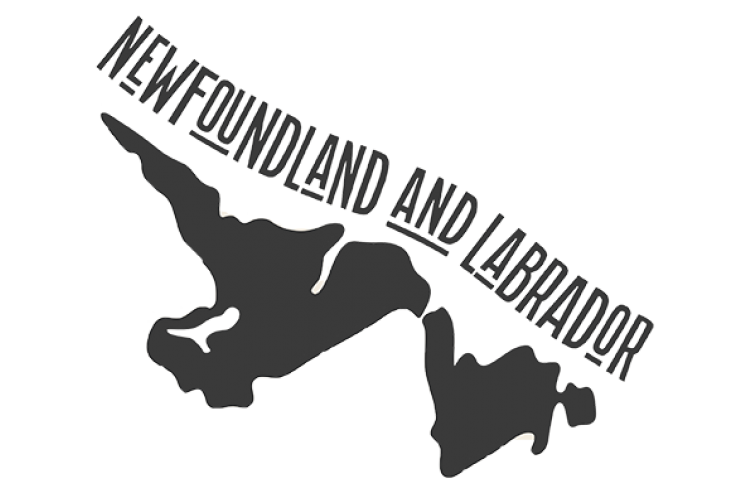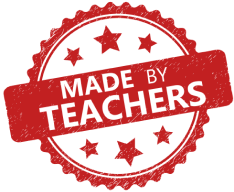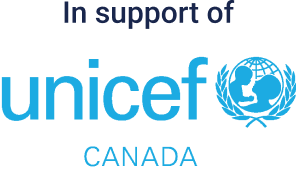Newfoundland and Labrador Grade 4

CLICK HERE FOR CURRICULUM CONNECTIONS, LESSONS AND SUPPORT RESOURCES.
Made by a Grade 4 teacher in Newfoundland & Labrador.
Kids Boost Immunity (KBI) provides educational content (lessons and support materials) developed by teachers and where needed, health experts, that is directly linked to curriculum and is available completely for free. Each lesson is paired with an online quiz that students can take on a laptop, tablet, or phone. Every time a student scores 80% or higher on a quiz, we donate life-saving vaccines to UNICEF Canada. To learn more about KBI, click here.
Click on the overarching curriculum themes below to see the curriculum outcomes that match KBI educational content. The full Grade 4 Newfoundland & Labrador Curriculum Connections document is here.
- Building Critical Inquiry Skills
-
Curricular Outcomes:
Social Studies- Introduction
- i.1 Use an inquiry model to explore and resolve significant questions
- i.2 Apply intellectual tools to analyze events, ideas, issues, patterns and trends
- i.3 Make reasoned assessments based on appropriate criteria
Science General Course Outcomes
- GCO 2: Skills Students will develop the skills required for scientific and technological inquiry, for solving problems, for communicating scientific ideas and results, for working collaboratively, and for making informed decisions.
- identify and use a variety of sources and technologies to gather relevant information
- state a prediction and a hypothesis
- communicate procedures and results
ELA
- GCO 5: Students will be expected to interpret, select, and combine information using a variety of strategies, resources, and technologies.
- 5.2 analyze information from reliable and relevant sources
- GCO 7: Students will be expected to respond critically to a range of texts, applying their understanding of language, form, and genre.
- 7.1 analyze the intended messages in a variety of text types and forms
- 7.2 respond critically to a variety of text types and forms
- GCO 3: Students will be expected to interact with sensitivity and respect, considering the situation, audience, and purpose.
- detect examples of prejudice, stereotyping or bias in oral language, recognize their negative effect on individuals and cultures and attempt to use bias-free language
- make a conscious attempt to consider the needs and expectations of their audience
- 3.1 communicate with respect and sensitivity
Applicable KBI lessons:
1. Critical Thinking & Evaluating Information
- Literacy builder worksheet/answer guide
- Lesson worksheet/answers
- Inquiry activities/answer guides
- Numeracy activity/answers
- Indigenous history in Canada
-
Curricular outcomes:
Social Studies: Culture & Diversity
- Students will be expected to demonstrate an understanding of culture, diversity, and world view, while recognizing the similarities and differences reflected in various personal, cultural, racial, and ethnic perspectives.
Social Studies- Interdependence
- Students will be expected to demonstrate an understanding of the interdependent relationships among individuals, societies, and the environment—locally, nationally, and globally—and the implications for a sustainable future.
Social Studies Unit One: Exploration Defined
- SCO 1.0 – The student will be expected to demonstrate an understanding of the concept of exploration
Social Studies Unit Two: The Nature of Exploration
- SCO 2.0 – The student will be expected to demonstrate an understanding of the stories of various explorers of land, ocean, space, and ideas.
- SCO 3.0 – The student will be expected to demonstrate an understanding of factors that motivate exploration
- SCO 4.0 – The student will be expected to demonstrate an understanding of the impact of exploration over time
Social Studies Unit Three: Exploring Our World
- SCO 7.0 – The student will be expected to demonstrate an understanding of the relationship between humans and the physical environment
- 7.2 Describe the challenges posed by the physical environment
ELA- GCO 3
- GCO 3: Students will be expected to interact with sensitivity and respect, considering the situation, audience, and purpose.
- detect examples of prejudice, stereotyping or bias in oral language, recognize their negative effect on individuals and cultures and attempt to use bias-free language
- make a conscious attempt to consider the needs and expectations of their audience
- 3.1 communicate with respect and sensitivity
Science - Light
- 41.0 explore how science and technology have been used to solve problems in the home and at school [GCO 1]
- 43.0 describe instances where scientific ideas and discoveries have led to new inventions and applications [GCO 1]
- 52.0 describe scientific and technological activities carried out by people from different cultures
Applicable KBI lessons:
1. Life on Turtle Island
- Literacy builder worksheet/answer guide
- Video worksheet/answers
- Lesson worksheet/answers
2. Cooperation & Colonization
- Literacy builder worksheet/answer guide
- Lesson worksheet/answers
- Impact On Natural Resources and Conservation
-
Curricular outcomes:
Social Studies: Culture & Diversity
- Students will be expected to demonstrate an understanding of culture, diversity, and world view, while recognizing the similarities and differences reflected in various personal, cultural, racial, and ethnic perspectives.
Social Studies Unit Three: Exploring Our World
- SCO 5.0 – The student will be expected to demonstrate an understanding of Earth’s physical environment
- SCO 7.0 – The student will be expected to demonstrate an understanding of the relationship between humans and the physical environment
- 7.3 Explain the impact that human activity has on the physical environment
Science- Sound
- 25.0 -demonstrate that specific terminology is used in science and technology contexts
Science- Habitat & Communities
- 37.0 contemplate their own and their family’s impact on natural resources
- 38.0 describe how personal actions help conserve natural resources and care for living things and their habitats [GCO 1]
- 52.0 describe scientific and technological activities carried out by people from different cultures
- 65.0 identify examples of scientific knowledge that have developed from a variety of sources [GCO 1]
Science- General Course Outcomes
- GCO 1: Science, Technology, Society, and the Environment Students will develop an understanding of the nature of science and technology, of the relationships between science and technology, and of the social and environmental contexts of science and technology.
ELA- Education for Sustainable Development (ESD)
- Sustainable development is comprised of three integrally connected areas: economy, society, and environment.
Applicable KBI lessons:
1. Environment & Climate Change
- Literacy builder worksheet/answer guide
- Video worksheet/answers
- Lesson worksheet/answers
- Numeracy activity/answers
- The Body’s Defence System & Immunization
-
Curricular outcomes:
Health - Self Care
- 1. identify some chronic disorders such as allergies and asthma and some communicable diseases such as colds, flus and AIDS
- 2. identify some ways to prevent the spread of communicable diseases
- 3. know that the immune system is the body’s defence against disease
- 4. understand the purpose of immunization
Health- Environmental Health
- 1. recognize the importance of clean air and water for everyday life
- 3. understand the responsibility of governments, communities, families and individuals for maintaining an aesthetic and healthful environment
- 4. describe how air and water pollution can be controlled and/or reduced
- 5. recognize the potential health hazards of air and water contamination,
- 6. create a plan to address an environmental (air or water) issue in the home, school or community
Math- Patterns & Relations
- GCO Use patterns to describe the world and solve problems.
- SCO 4PR1 Identify and describe patterns found in tables and charts, including a multiplication chart.
- SCO 4PR2 Translate among different representations of a pattern, such as a table, a chart or concrete materials.
- SCO 4PR3 Represent, describe and extend patterns and relationships, using charts and tables, to solve problems.
Applicable KBI lessons:
1. Germs, The Body's Defense System, and How Vaccines Help
- Lesson worksheet
2. Antibiotics
3. Influenza
- Levels of Government and Map Reading
-
Curricular outcomes:
Social Studies - Exploring the Landscapes of Canada
- 10.0- The student will be expected to demonstrate an understanding of the political landscape of Canada
- 10.1- Explain how the federal government is organized
- 10.2- Explain how the federal government operates
Social Studies - Communication
- use maps, globes, pictures, models, and technologies to represent and describe physical and human systems.
- Skill:
- Develop mapping skills
- Use a range of media and styles to present information, arguments, and conclusions
Social Studies - Attitudes, Values, & Perspectives
- Citizenship, Power, and Governance
- Students will be expected to demonstrate an understanding of the rights and responsibilities of citizenship, and the origins, functions, and sources of power, authority, and governance.
- appreciate the varying perspectives on the effects of power, privilege, and authority on Canadian citizens
- develop attitudes that balance rights with responsibilities
- value decision making that results in positive change
- Students will be expected to demonstrate an understanding of the rights and responsibilities of citizenship, and the origins, functions, and sources of power, authority, and governance.
English Language Arts
- ELA GCO 4
- Students will be expected to select, read, and view with understanding a range of literature, information, media, and visual texts
- 4.4- use strategies to make sense of texts
Math - Multiplication & Division Facts
- GCO Use patterns to describe the world and solve problems.
- 4PR6 Solve one-step equations involving a symbol to represent an unknown number. [C, CN, PS, R, V]
Health - Environmental Health
- 1. recognize the importance of clean air and water for everyday life
- 3. understand the responsibility of governments, communities, families and individuals for maintaining an aesthetic and healthful environment
Applicable KBI lessons:
1. Canada's Three Levels of Government
- Literacy builder worksheet/answer guide
- Lesson worksheet/answers
- Video worksheet/answer guide
- Numeracy activity/answers
- Classifying Living Things and Food Chains
-
Curricular outcomes:
Science- Habitats & Communities
- 67.0 compare the structural and behavioural adaptations of animals that help them survive in different kinds of places [GCO 3]
- 68.0- classify organisms according to their role in a food chain [GCO 3]
- 15.0- classify according to several attributes and create a chart or diagram that shows the method of classifying
- 38.0- describe how personal actions help conserve natural resources and care for living things and their habitats
Science- Sound
- 25.0 -demonstrate that specific terminology is used in science and technology contexts
Math- Fractions & Decimals
- 4N8- Demonstrate an understanding of fractions less than or equal to one by using concrete, pictorial and symbolic representations to:
- name and record fractions for the parts of a whole or a set
- compare and order fractions
- model and explain that for different wholes, two identical fractions may not represent the same quantity
- provide examples of where fractions are used. [C, CN, PS, R, V]
ELA- GCO 5
- GCO 5: Students will be expected to interpret, select, and combine information using a variety of strategies, resources, and technologies.
- 5.2 analyze information from reliable and relevant sources
ELA- GCO 7
- GCO 7: Students will be expected to respond critically to a range of texts, applying their understanding of language, form, and genre.
- 7.1 analyze the intended messages in a variety of text types and forms
- 7.2 respond critically to a variety of text types and forms
Health: Self Care
- 1. identify some chronic disorders such as allergies and asthma and some communicable diseases such as colds, flus and AIDS,
- 2. identify some ways to prevent the spread of communicable diseases,
- 3. know that the immune system is the body’s defence against disease,
- 4. understand the purpose of immunization,
- 5. demonstrate proper handwashing practice, and
- 6. rate personal health habits and practices in relation to caring for oneself.
Applicable KBI lessons:
1. Classifying Living Things
- Literacy builder worksheet/answer guide
- Lesson worksheet/answers
- Numeracy activity/answers
2. The Spread of Infectious Diseases
- Social/Emotional Adjustment and Physical Well-Being
-
Curricular outcomes:
Health
- Recognize the relationship between emotional/social adjustment and physical well-being.
- Evaluate communication techniques used by self and peers.
Applicable KBI lessons:
1. Social & Emotional Learning
Curriculum-Related Themes Throughout the Year
- Reflecting on hardships and courage during WWII (November)
-
Curricular outcomes:
ELA
- ELA GCO 2: Students will be expected to communicate information and ideas effectively and clearly, and to respond personally and critically.
- ELA GCO 3: Students will be expected to interact with sensitivity and respect, considering the situation, audience, and purpose.
- ELA GCO 4: Students will be expected to select, read, and view with understanding a range of literature, information, media, and visual texts.
- 4.2 use text structures to construct meaning
- 4.3 use text features to construct meaning
- 4.4 use strategies to make sense of texts
- ELA GCO 6: Students will be expected to respond personally to a range of texts.
- 6.2 use evidence from texts to support responses
- ELA GCO 7: Students will be expected to respond critically to a range of texts, applying their understanding of language, form, and genre.
- 7.1 analyze the intended messages in a variety of text types and forms)
Health Self- Care
- 1. identify some chronic disorders such as allergies and asthma and some communicable diseases such as colds, flus and AIDS
- 2. identify some ways to prevent the spread of communicable diseases
Applicable KBI lessons:
1. Remembrance Day / Veterans Day / Armistice Day
- Being kind and building leadership skills to help make a difference to others (December)
-
Curricular outcomes:
Health- Relationships
- 11. know how to express concern for others in the class.
Applicable KBI lessons:
1. Winter Break - Spreading Kindness
- Highlighting some key inspirational leaders during Black History Month as well as some experiences of refugees from different parts of the world (February)
-
Curricular outcomes:
Health Self-Care
- 1. identify some chronic disorders such as allergies and asthma and some communicable diseases such as colds, flus and AIDS,
Science:
- GCO 1 Science, Technology, Society, and the Environment Students will develop an understanding of the nature of science and technology, of the relationships between science and technology, and of the social and environmental contexts of science and technology.
Social Studies- Attitudes, Values, & Perspectives
- Citizenship, Power, and Governance
- Students will be expected to demonstrate an understanding of the rights and responsibilities of citizenship, and the origins, functions, and sources of power, authority, and governance.
- appreciate the varying perspectives on the effects of power, privilege, and authority on Canadian citizens
- develop attitudes that balance rights with responsibilities
- value decision making that results in positive change
- Students will be expected to demonstrate an understanding of the rights and responsibilities of citizenship, and the origins, functions, and sources of power, authority, and governance.
Social Studies: Culture & Diversity
- Students will be expected to demonstrate an understanding of culture, diversity, and world view, while recognizing the similarities and differences reflected in various personal, cultural, racial, and ethnic perspectives.
ELA
- ELA GCO 4: Students will be expected to select, read, and view with understanding a range of literature, information, media, and visual texts.
- 4.2 use text structures to construct meaning
- 4.3 use text features to construct meaning
- 4.4 use strategies to make sense of texts
- ELA GCO 5: Students will be expected to interpret, select, and combine information using a variety of strategies, resources, and technologies.
- 5.2 analyze information from reliable and relevant sources ,
- 5.3 organize information in a meaningful wa ,
- 5.4 share new learning from inquiry,
- ELA GCO 8: Students will be expected to use writing and other forms of representation to explore, clarify, and reflect on their thoughts, feelings, experiences and learnings; and to use their imaginations.
- 8.1 express feelings and imaginative ideas through writing and representing
- ELA GCO 9: Students will be expected to create texts collaboratively and independently, using a variety of forms for a range of audiences and purposes.
- 9.1 create various text types and forms for specific purposes and audiences when writing and representing.
- ELA GCO 10: Students will be expected to use a range of strategies to develop effective writing and representing to enhance their clarity, precision, and effectiveness.
- 10.1 create texts using the processes of writing and representing
Science - Light
- 41.0 explore how science and technology have been used to solve problems in the home and at school [GCO 1]
- 43.0 describe instances where scientific ideas and discoveries have led to new inventions and applications [GCO 1]
- 52.0 describe scientific and technological activities carried out by people from different cultures
Health Self- Care
- 6. rate personal health habits and practices in relation to caring for oneself.
Applicable KBI lessons:
1. Black History Month
2. Refugee Experiences
- Lesson worksheet/answers
- Inquiry activities
- Celebrating inspiring women in STEM (March)
-
Curricular outcomes:
Science GCO 1: STSE
- describe applications of science and technology that have developed in response to human and environmental needs
- describe positive and negative effects that result from applications of science and technology in their own lives, the lives of others, and the environment
Science GCO 4: Attitudes
- recognize that women and men of any cultural background can contribute equally to science
- 34.0 describe examples of modern technologies that did not exist in the past ( GCO 1)
- 35.0 identify examples of scientific questions and technological problems that are currently being studied ( GCO 1)
- 41.0 explore how science and technology have been used to solve problems in the home and at school ( GCO 1)
- 52.0 describe scientific and technological activities carried out by people from different cultures ( GCO 1)
- 53.0 provide examples of Canadians who have contributed to science and technology ( GCO 1)
Health - Relationships
- 8. become aware of male/female stereotyping,
- 10. identify examples of positive role models and explain their importance,
Health - Self- Care
- 4. understand the purpose of immunization,
ELA
- ELA GCO 4: Students will be expected to select, read, and view with understanding a range of literature, information, media, and visual texts.
- 4.2 use text structures to construct meaning
- 4.3 use text features to construct meaning
- 4.4 use strategies to make sense of texts
- ELA GCO 9: Students will be expected to create texts collaboratively and independently, using a variety of forms for a range of audiences and purposes.
- 9.1 create various text types and forms for specific purposes and audiences when writing and representing.
- ELA GCO 10: Students will be expected to use a range of strategies to develop effective writing and representing to enhance their clarity, precision, and effectiveness.
- 10.1 create texts using the processes of writing and representing
Applicable KBI lessons:
1. International Women's Day - Celebrating Inspiring Women in STEM
- Literacy builder worksheets/answer guides
- Inquiry activities
- Understanding communicable diseases and how they are spread, and learning about immunization. Suggested during flu season, immunization awareness week, and school vaccinations (if applicable)
-
Curricular outcomes:
Science GCO 1: STSE
- describe applications of science and technology that have developed in response to human and environmental needs
- describe positive and negative effects that result from applications of science and technology in their own lives, the lives of others, and the environment
- 34.0 describe examples of modern technologies that did not exist in the past ( GCO 1)
- 35.0 identify examples of scientific questions and technological problems that are currently being studied ( GCO 1)
- 41.0 explore how science and technology have been used to solve problems in the home and at school ( GCO 1)
- 43.0 describe instances where scientific ideas and discoveries have led to new inventions and applications ( GCO 1)
ELA
- GCO 4: Students will be expected to select, read, and view with understanding a range of literature, information, media, and visual texts.
Health- Self- Care
- 4. understand the purpose of immunization.
Health - Consumer Health:
- 3. identify various sources of health-related information,
- 4. identify some of the factors that influence the selection of health products and services, and
- 5. access the health services in the community.
Environmental Health:
- 1. recognize the importance of clean air and water for everyday life,
- 3. understand the responsibility of governments, communities, families and individuals for maintaining an aesthetic and healthful environment, 4. describe how air and water pollution can be controlled and/or reduced,
- 5. recognize the potential health hazards of air and water contamination
Health - Self Care
- 1. identify some chronic disorders such as allergies and asthma and some communicable diseases such as colds, flus and AIDS,
- 2. identify some ways to prevent the spread of communicable diseases,
- 3. know that the immune system is the body’s defence against disease,
- 4. understand the purpose of immunization
- 6. rate personal health habits and practices in relation to caring for oneself
ELA
- GCO 5: Students will be expected to interpret, select, and combine information using a variety of strategies, resources, and technologies.
- 5.2 analyze information from reliable and relevant sources ,5.3 organize information in a meaningful ways
Social Studies - Culture and Diversity
- recognize and respond in appropriate ways to stereotyping/discrimination
- appreciate that there are different world views
- appreciate the different approaches of cultures to meeting needs and wants
Applicable KBI lessons:
1. Immunization Awareness Week
2. Canada's Interactions with the Global Community
- Literacy builder worksheet/answer guide
- Lesson worksheet/answers
- Video worksheet/answers
- Numeracy activity
- Inquiry activities
3. Scientific Curiosity and Vaccine Discoveries




